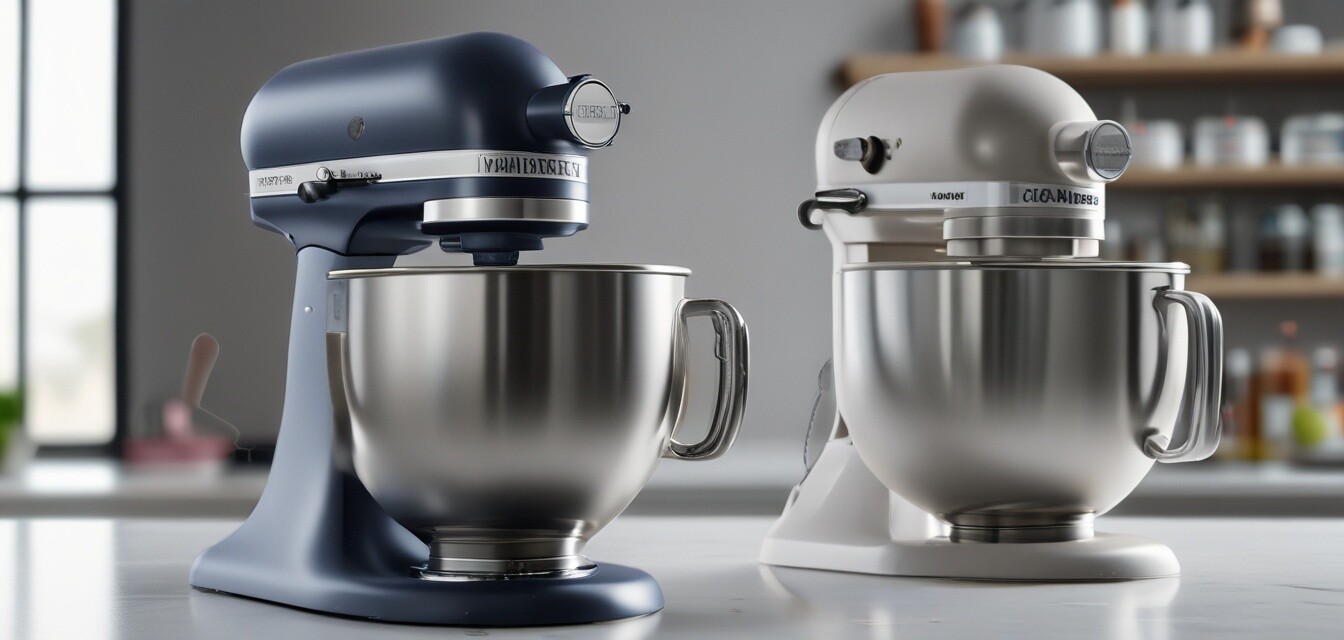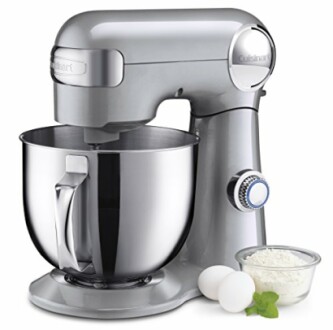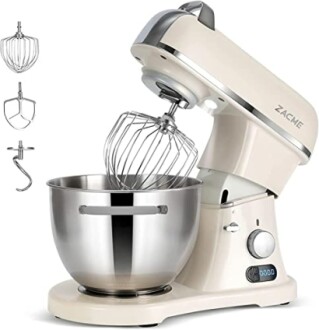
Disclosure: The FTC requires that this article indicate that it was created using AI and is not based on personal experience. It includes affiliate links, which means we may earn a commission if you purchase through these links at no extra cost to you. As Amazon Associates, we earn from qualifying purchases. Product recommendations and endorsements were generated by AI and do not reflect personal opinions or real-world use.
Comprehensive Guide to Commercial Mixers
Key Takeaways
- Commercial mixers are essential for large cooking projects, allowing for efficient mixing and preparation of large batches.
- Choosing the right commercial mixer depends on your specific needs, including capacity, power, and speed options.
- Different models offer unique features that can enhance your cooking experience, such as planetary mixing actions and easy-to-clean designs.
- It's crucial to compare models to find the optimal fit for your kitchen, especially for group cooking.
When it comes to cooking for groups, the effectiveness of your kitchen tools can make all the difference. In this comprehensive guide, we take an in-depth look at some of the top commercial mixers available on the market. Whether you're a professional caterer, a restaurant owner, or simply someone who often feeds a crowd, understanding what to look for in a commercial mixer will help you make an informed purchasing decision.
What is a Commercial Mixer?
A commercial mixer is a heavy-duty kitchen appliance designed to perform various mixing tasks such as kneading dough, whipping cream, mixing batter, and more, especially for larger volumes. These mixers usually have more powerful motors and larger bowls compared to standard mixers, making them ideal for high-demand environments like restaurants, bakeries, and catering services.
Key Features of Commercial Mixers
- Power: Look for mixers with higher wattage to ensure they can handle tough mixtures.
- Capacity: Choose a bowl size that fits your needs, typically measured in quarts.
- Speed Settings: Multiple speed options allow you to handle different mixing tasks with precision.
- Durability: Stainless steel or die-cast materials are common for enhanced longevity.
Benefits of Using a Commercial Mixer
- Allows for efficient mixing of large quantities.
- Reduces manual labor and saves time.
- Increases consistency in food preparation.
- Provides greater versatility with various attachments and accessories.
Popular Types of Commercial Mixers
| Type | Description | Best For |
|---|---|---|
| Planetary Mixer | Uses a rotating mechanism to mix ingredients thoroughly by moving the bowl and mixing attachment simultaneously. | Baking, Whipping, Kneading |
| Spiral Mixer | Ideal for dough mixing, keeps the dough intact while providing efficient mixing. | Pizza, Bread Making |
| Vertical Mixer | A powerful machine that can often mix and knead large quantities of dough effectively. | High-Volume Bakeries |
Top Commercial Mixers Reviewed
To help you make an informed decision, here’s a look at some of the most popular commercial mixers available today:
Cuisinart Stand Mixer
Powerful 500-watt motor with a 5.5-quart capacity, ideal for various mixing tasks.
Learn MoreStand Food Mixer, 6.5 Qt 660W
Features a tilt-head design and multiple speed options, perfect for versatility in the kitchen.
Learn More8.4QT Commercial Stand Mixer
Handles large dough quantities with an efficient 800W motor, perfect for commercial kitchens.
Learn MoreComparison Table of Commercial Mixers
| Product Name | Power (Watts) | Capacity (Quarts) | Speed Settings | Special Features |
|---|---|---|---|---|
| Cuisinart Stand Mixer | 500W | 5.5 | 12 | Stainless steel bowl, tilt-back head |
| Kuccu 6.5 QT Mixer | 660W | 6.5 | 6 | Anti-slip base, easy access |
| 8.4QT Commercial Mixer | 800W | 8.4 | 11 | NSF certified, digital display |
Making the Right Choice
When selecting the right commercial mixer, consider:
- Your typical batch sizes and the type of food you’ll be preparing.
- The ease of use and cleaning, especially when working with large volumes.
- The cost vs. the functionalities offered, ensuring good value for your investment.
Additional Resources
For more guidance on preparing for group cooking, check out these resources:
- Crowd-Pleasing Recipes
- Meal Planning for Large Groups
- Bulk Cooking Techniques
- Budget-Friendly Group Meals
- Commercial Kitchen Equipment
Tips for Beginners
- Start with simpler recipes to understand the mixing capabilities of your chosen mixer.
- Practice working with different ingredients to see how the mixer performs.
- Always follow the manufacturer's guidelines for operation and maintenance.


